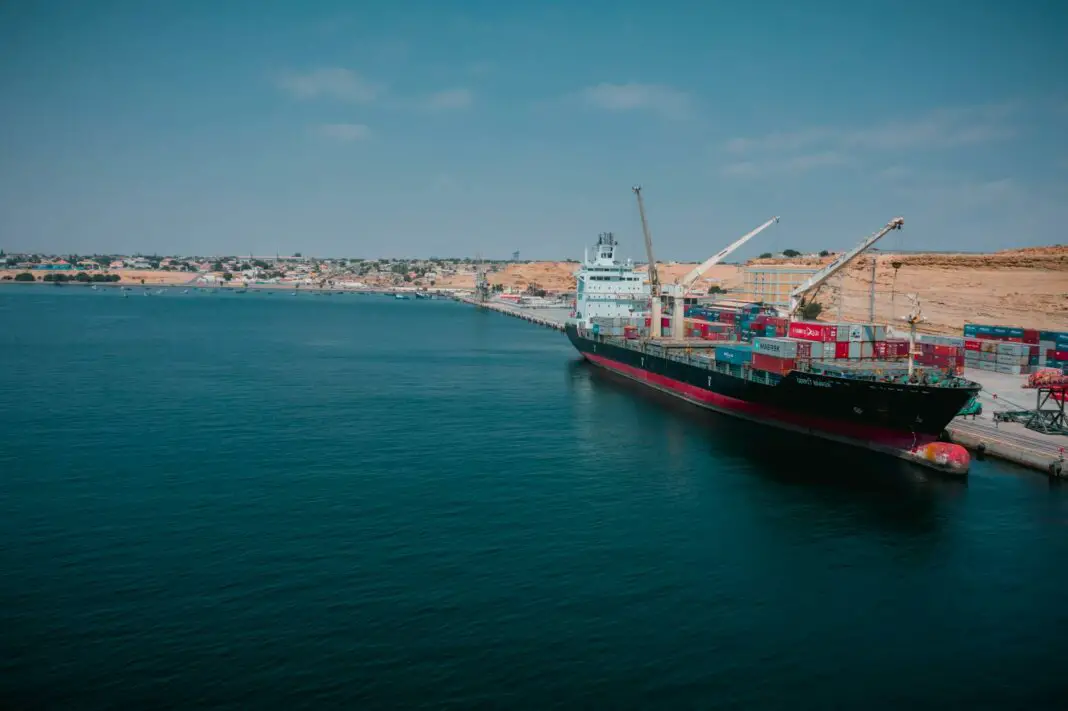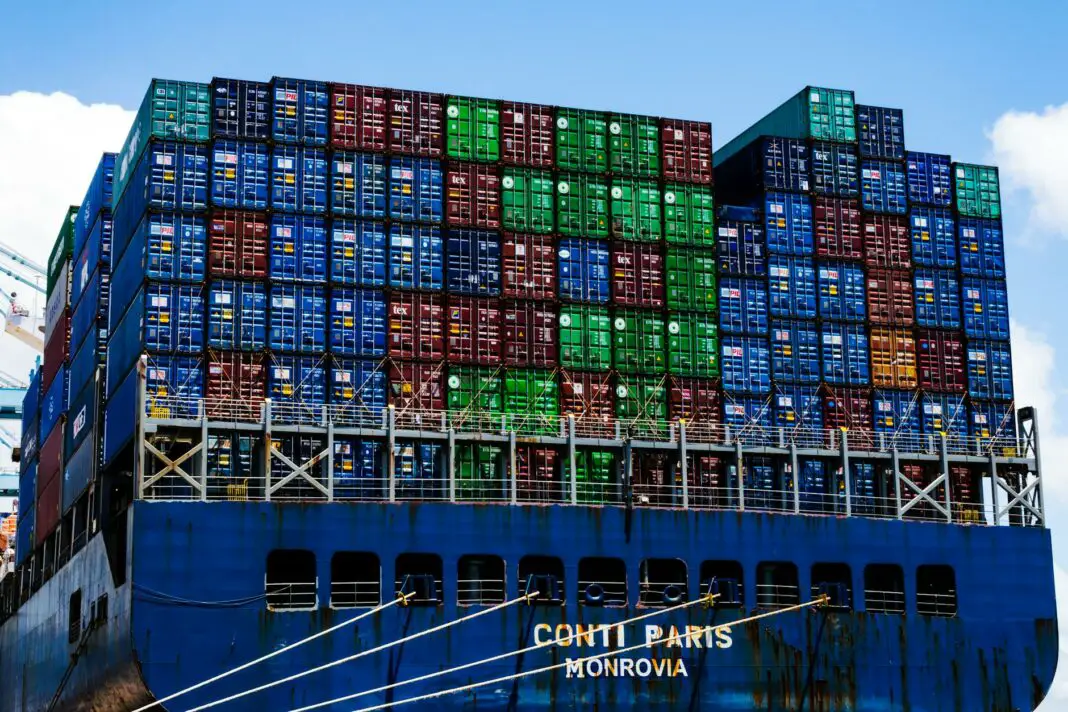Traveling to Thailand is an exhilarating adventure that tantalizes the senses and leaves visitors yearning for more. This vibrant country is not only known for its stunning landscapes, delicious cuisine, and rich cultural heritage but also for its strategic position as a logistics hub in Southeast Asia. By exploring whether Thailand is the ultimate logistics hub of the region, we delve into its infrastructural advantages, economic initiatives, and its key role in facilitating trade and connectivity across the continent. With this blog post, discover Thailand’s logistical prowess and how it stands out as an essential player in today’s global economy.
Join us on this detailed exploration that highlights Thailand’s geographic significance, transportation systems and innovations, trade agreements, and fast-developing infrastructure. Each section unravels Thailand’s potential and provides insights that are invaluable for businesses and travelers alike seeking to navigate the intricate tapestry of Southeast Asia’s logistics landscape. In doing so, we aim to not only inform but to inspire every reader, whether you are a business owner looking to expand or a curious traveler eager to uncover the realities behind Thailand’s logistics capabilities.
Table of Contents
- Geographic Significance
- Transportation Systems and Innovations
- Trade Agreements and Economic Initiatives
- Infrastructure Development and Future Prospects
- Key Industries and Logistics Operations
- Final Thoughts on Thailand as a Logistics Hub
- FAQ
Geographic Significance
Thailand’s prime geographic location places it at the heart of Southeast Asia, making it an accessible link for trade and commerce. Nestled between major nations like Malaysia, Myanmar, Laos, and Cambodia, the country’s position equips it with unparalleled advantages in connectivity. Indeed, this strategic placement not only serves local markets but also extends its reach to emerging economies in Asia, creating vast opportunities for both logistics and trade. As the rising demand for seamless supply chains grows, nations increasingly recognize Thailand’s potential to emerge as a focal point for operations, drawing interest from multinational corporations and logistics firms eager to capitalize on this geographic advantage.
Moreover, Thailand’s extensive coastline facilitates maritime transport while also providing access to the South China Sea, one of the world’s busiest shipping routes. This advantage cannot be overstated, as it enables cost-effective bulk trade through ports such as Laem Chabang and Bangkok. Over time, evolving trade dynamics have only bolstered Thailand’s position, attracting investments in logistics services and making it a premium destination for regional operations. In a world where global connectivity is vital, Thailand’s geographical prowess can hardly be ignored when contemplating the logistics ecosystem of Southeast Asia.
Transportation Systems and Innovations
Highly developed transportation systems in Thailand underpin the nation’s logistics capabilities, enhancing its status as a regional hub. The country boasts a robust network of roadways, railways, air routes, and waterways, creating an extensive infrastructure that facilitates the efficient movement of goods and people. The expressways linking major cities contribute wildly to reducing transit times while making last-mile deliveries smoother than ever. Furthermore, initiatives like the establishment of industrial estates with built-in logistics support are propelling Thailand toward becoming a globally recognized supply chain powerhouse.
Innovative technologies are swiftly making their way into the logistics sector, showcasing Thailand’s commitment to modernizing its transportation networks. Digital platforms that streamline cargo tracking, AI-driven logistics planning, and smart transportation systems are gaining traction. These advancements not only enhance operational efficiency but also offer businesses greater transparency and reliability. For example, logistics firms are adopting automated warehousing solutions that enable quicker turnaround times, thereby meeting customers’ expectations. As technology continues to shape the logistics landscape, Thailand is emerging as a frontrunner in harnessing advancements to stay competitive on the global stage.
Trade Agreements and Economic Initiatives
Trade agreements play a crucial role in affirming Thailand’s status as a logistics hub within Southeast Asia. Various free trade agreements (FTAs) with multiple nations have established Thailand as a vital player in international trade. The ASEAN Economic Community, for instance, has significantly integrated the regional markets, reducing tariffs and promoting seamless trade among member countries. Such agreements not only bolster Thailand’s appeal for export-oriented businesses but also amplify its position as a logistics gateway to broader Southeast Asia.
Moreover, the Thai government is actively promoting economic initiatives aimed at enhancing the nation’s logistics capabilities. Under plans like the Thailand 4.0 initiative, investments in high-tech logistics have become a focus, transitioning the sector toward digitalization and advanced technologies. By leveraging these initiatives, the country is maximizing its potential to act as a distribution center for regional and global markets. As a result, businesses looking to optimize their logistics strategies are increasingly recognizing Thailand as a strategic partner capable of delivering results effectively and efficiently.
Infrastructure Development and Future Prospects
A comprehensive logistic ecosystem relies heavily on continuous infrastructure development, and Thailand is diligently investing in this arena. Recent upgrades to existing airports, including the expansion of Suvarnabhumi Airport and the development of new air cargo terminals, provide significant boosts to international freight capabilities. Meanwhile, expansion projects on the rail network, particularly the high-speed rail linking China and Laos through Thailand, present unprecedented opportunities for moving goods across borders. By enhancing connectivity, these infrastructural improvements strengthen trade routes and facilitate smoother cross-border transactions.
Looking ahead, Thailand’s ambitious plans for smart city initiatives and digital infrastructure enhancements signal a commitment to sustainable development. The government’s vision includes harnessing technology to improve logistics and supply chain management while reducing carbon emissions. This strategic foresight highlights Thailand’s potential to adapt to the evolving needs of global commerce. Businesses with an eye on sustainability are likely to find Thailand an attractive destination due to its forward-thinking approach to infrastructure development, ultimately fostering trust in its logistics framework.
Key Industries and Logistics Operations
Several key industries elevate Thailand’s logistics appeal, contributing significantly to its ongoing development as a logistics hub. The manufacturing sector, accounting for a substantial proportion of the economy, often generates substantial inbound and outbound logistics requirements. Industries such as automotive, electronics, and consumer goods all demand intricate supply chain management, and with Thailand being one of the largest automotive manufacturing bases in the region, its logistics operations are indispensable. Companies within these sectors are continually looking for reliable and efficient logistics solutions to get their products to market swiftly, thereby driving innovations in the logistics sector further.
Additionally, the growth of e-commerce in Thailand is transforming the logistics landscape significantly. As more consumers embrace online shopping, the demand for quick and reliable delivery services surges, compelling logistics providers to adapt rapidly. The increased competition and technological advancements in this space have paved the way for fresh logistics solutions, from automated warehouses to advanced last-mile delivery systems. Thailand’s positioning within this booming e-commerce market further solidifies its status as a logistics hub, attracting entrepreneurs and international companies keen to tap into the potential offered by emerging opportunities.
The Future of Logistics in Thailand and Beyond
The journey into understanding whether Thailand is the ultimate logistics hub of Southeast Asia reveals a compelling narrative of growth, innovation, and strategic advantages. With its prime geographic location, extensive transportation systems, favorable trade agreements, and ongoing infrastructure developments, Thailand’s role as a logistics center is firmly established. Businesses that harness these advantages will likely thrive, while investors will find fertile ground for partnership and growth in logistics.
As Thailand continues to evolve and elevate its logistical capabilities, the opportunities for businesses to thrive in this environment only increase. Those who choose to explore logistics in Thailand are sure to find a thriving ecosystem ready to propel their ventures forward in a rapidly changing global landscape. The wealth of possibilities available in this tropical paradise makes it an exciting time for both businesses and travelers alike, encouraging all to dive in and experience the best that Thailand has to offer.
Frequently Asked Questions
- What makes Thailand a logistics hub? Thailand’s strategic location, advanced infrastructure, and strong trade agreements make it an advantageous logistics hub in Southeast Asia. Coupled with a robust transport network and increasing use of technology, it facilitates efficient movement of goods.
- How is Thailand improving its transportation infrastructure? Ongoing investments include expansions in airports, high-speed rail projects, and roadways, which all enhance connectivity and efficiency in logistics operations.
- What industries benefit most from Thailand’s logistics capabilities? Key sectors such as automotive, electronics, and e-commerce heavily rely on Thailand’s logistics infrastructure to manage their supply chains effectively.
- Are there sustainable logistics initiatives in Thailand? Yes, the government is promoting eco-friendly logistics solutions and smart city initiatives aimed at reducing carbon emissions while enhancing logistical efficiency.
- How can businesses leverage logistics in Thailand? By capitalizing on Thailand’s strategic advantages in transportation, network connectivity, and rising e-commerce, businesses can optimize their operations and reach broader markets.
Image Credit: Pexels





